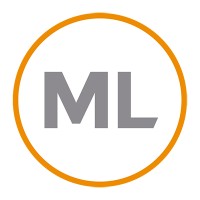
A CRISP VAT DECISION – WHEN IS A POPPADOM NOT A POPPADOM?
Released On 21st Feb 2024
By Julian Borley, VAT Director at Milsted Langdon
A recent VAT decision in respect of Walkers Sensation Poppadoms confirms two important thoughts on VAT.
Firstly, though it might be tempting to describe a supply of goods or services in a particular way to obtain a VAT advantage, the reality of the underlying supply always needs to be considered.
Secondly, VAT is a very complex tax where advice is always recommended!
HMRC’s own public guidance suggests that the sale of traditional poppadoms should be zero-rated but the VAT Legislation states that crisps and similar products are subject to VAT at the 20 per cent rate of VAT.
The Tribunal found that just because a product is described as a Poppadom doesn’t mean that it isn’t in fact a crisp!
The Tribunal suggested that names can be deceiving – bizarrely stating that Monster Munch are not solely eaten by monsters and Hula Hoop crisps cannot be twirled around someone’s midriff!
Having determined that the name of a product is not necessarily conclusive with this “Monster” argument, the Tribunal then looked into its ingredients and the way that it was sold and marketed.
The Tribunal came to the conclusion that the high potato/potato starch content, the packaging and the fact that it was marketed to be eaten like a crisp meant that the product should be taxed as if it were a crisp or similar product.
In view of the HMRC guidance suggesting that traditional poppadoms are zero-rated, it is likely that the manufacturers had felt that zero rating should have applied.
Confusingly Tortilla Chips, products made for dipping and some well-known snack products that are made from ingredients other than potato (all products which the general public are likely to have previously considered to be crisps when they are snacking) can be subject to the zero rate.
On this basis, many major food manufacturers will be familiar with exactly how perplexing VAT can be and know that potentially, advice should be taken from a food scientist as much as from a VAT advisor.
However, this level of uncertainty can also be translated into the VAT treatment of goods and services in other sectors.
If a business is relying on a supply being VAT-free but recognises that there is potentially more than one interpretation of the nature of its supply, or that the value of the transaction is such that it would cause problems if HMRC could apply a different interpretation (perhaps that the business has yet to identify) then it is recommended to take further advice.
For more information on Milsted Langdon’s VAT consultancy services, get in touch with our team.






